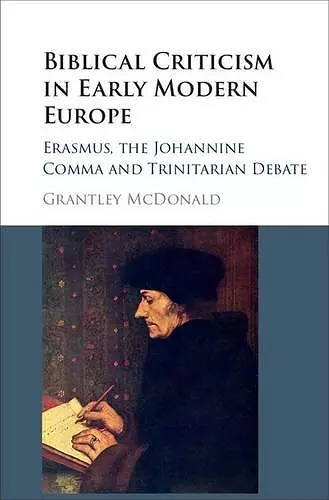Biblical Criticism in Early Modern Europe
Erasmus, the Johannine Comma and Trinitarian Debate
Format:Hardback
Publisher:Cambridge University Press
Published:27th Jul '16
Currently unavailable, and unfortunately no date known when it will be back

This book explores the explosive social and political implications of Erasmus' philological work on the Greek New Testament.
Medieval western theologians considered the Johannine comma (1 John 5:7-8) the clearest biblical evidence for the Trinity. When Erasmus failed to find the comma in the Greek manuscripts he used for his New Testament edition, he omitted it. Accused of promoting Antitrinitarian heresy, Erasmus included the comma in his third edition (1522) after seeing it in a Greek codex from England, even though he suspected the manuscript's authenticity. The resulting disputes, involving leading theologians, philologists and controversialists such as Luther, Calvin, Sozzini, Milton, Newton, Bentley, Gibbon and Porson, touched not simply on philological questions, but also on matters of doctrine, morality, social order, and toleration. While the spuriousness of the Johannine comma was established by 1900, it has again assumed iconic status in recent attempts to defend biblical inerrancy amongst the Christian Right. A social history of the Johannine comma thus provides significant insights into the recent culture wars.
'What this book superbly demonstrates is that the relation between philology and theology is by no means straightforward, and that there was by no means a clash between philology and theology.' Dirk van Mierr, Renaissance Quarterly
'… Biblical Criticism in Early Modern Europe remains a highly accomplished work of intellectual history. McDonald deftly unfolds a complex and fascinating controversy of great moment in the history of Christian ideas.' Hilmar M. Pabel, Journal of Ecclesiastical History
ISBN: 9781107125360
Dimensions: 235mm x 158mm x 25mm
Weight: 690g
400 pages